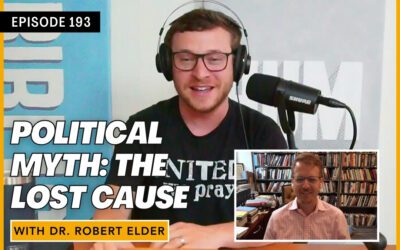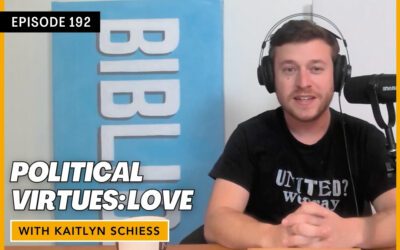Are we a Political Pharisee? Are Evangelical churches becoming more or less ethnically diverse? New data from Michael Emerson provides some surprising answers. According to Emerson, membership and leadership of Evangelical churches are becoming more ethnically diverse than anyone anticipated was possible. His conclusion as a sociologist is that this is clearly the work of God, as it is not explainable otherwise.
I will admit that I was surprised by the increase in diversity. Many churches are working toward that end, but it encouraged me to see fruit. I was freshly reminded of how our efforts depend on God blessing them (I Corinthians 3, Psalm 127).
There was one paragraph in the middle of this article that stuck out to me. It noted that there was a statistically-significant regression in this decades-long trend toward greater diversity. It occurred after our last presidential election.
Michael Emerson joined our podcast a few seasons ago to talk about ethnic division in churches. Listen here.
Put another way, thousands of people of color left predominantly white churches following the last election.
There is no way for us to enter the mind or heart of another person to judge their motivations (I Corinthians 4). I cannot know why any of these people left their church unless they tell me. I do not know what any of these churches did or did not do to make people uncomfortable and leave. My takeaway after reading the study was wanting to examine myself and how I hold my political convictions.
My concern is that churches not require specific political affiliation to attend, join, or feel welcome. I don’t know of a church that checks party registration during membership interviews. But there are more subtle ways of signalling what’s normal–who belongs and who doesn’t.
Political polarization seems only to be increasing in the world. I suspect this will only get worse in the present context of Coronavirus response. As the heat increases out there, Christians have an amazing opportunity to show the surpassing greatness of our unifying Lord (Romans 14).
I am not writing to try to change anyone’s mind, politically. My concern is the way we hold convictions and view others who have arrived at different convictions. I studied politics and government in college. It can be really complicated. People with the same values can disagree vehemently on the best way to achieve their shared goals. Just because a brother or sister believes in a different political course does not necessarily mean they love Jesus less than you.
Mark Dever previously joined our podcast to discuss how he thinks about this as a pastor.
There is a kind of love for diversity which loves it only in theory. Actually bringing people of different backgrounds, ethnicities, and, yes, political convictions around each other means more opportunities for disagreement–and more opportunities to agree in the Lord (Philippians 4:2).
I have a few questions I’ve asked myself since reading Emerson’s analysis. I share them in hopes that they serve your self-reflection:
- Have I made political affiliation into the kind of wall Jesus forbade in Matthew 23?
- Do I assume the worst motivations of people with differing political convictions?
- Am I in any way blurring the lines between party and faith?
- Is there grace and willingness to overlook offenses that I’m extending to my political tribe but denying others?
These are just a few to get you started. As we examine our own hearts, let us cry out to God for wisdom and grace to deal kindly with our brothers and sisters.
Prayer Requests:
- Pray that God show you convictions which you unrighteously require of others.
- Pray to be the kind of person who can hold deep convictions yet enjoy gracious fellowship with Christians who disagree.
- Pray that God would unify His churches in ways that stand out to a divided world.












